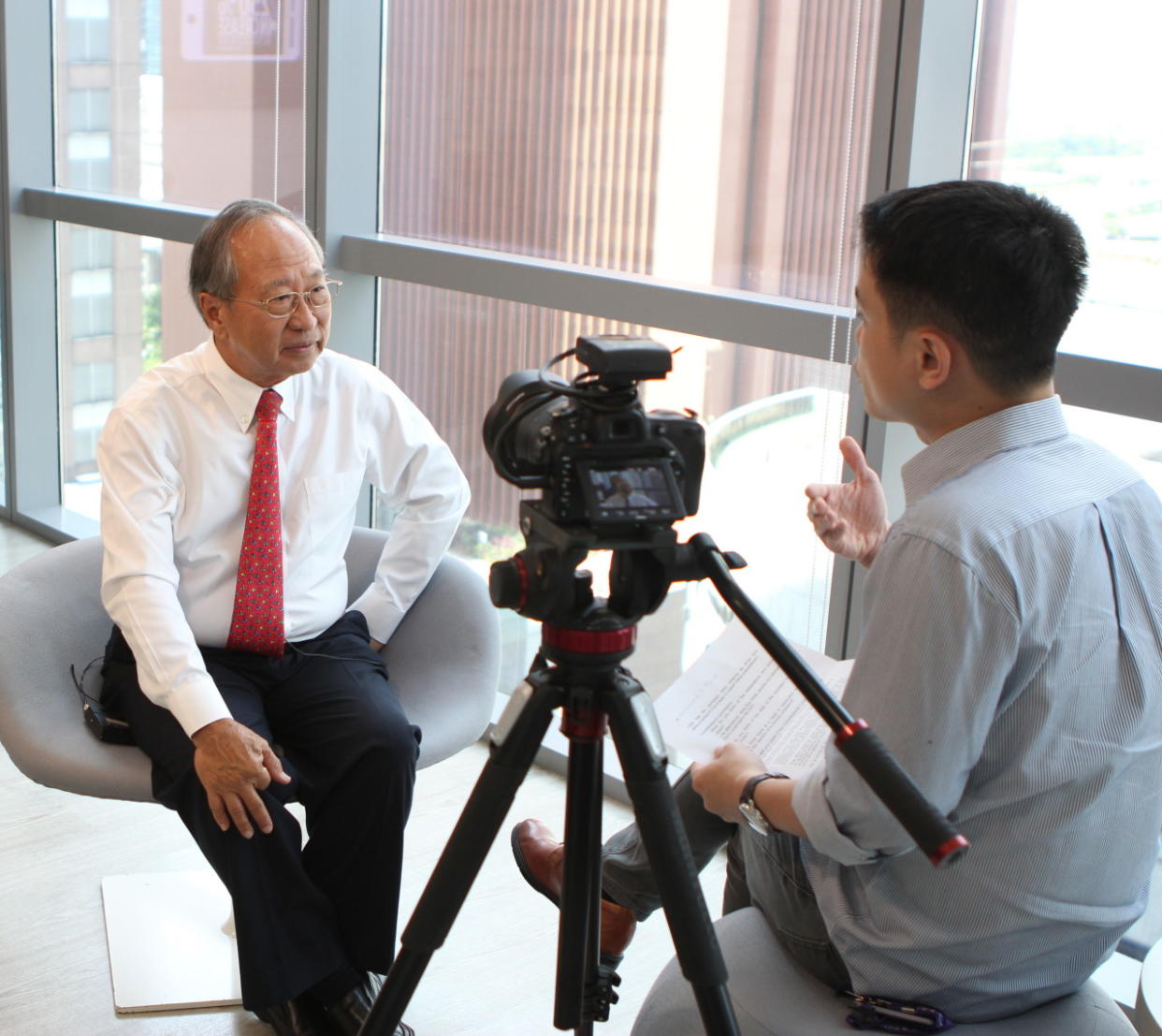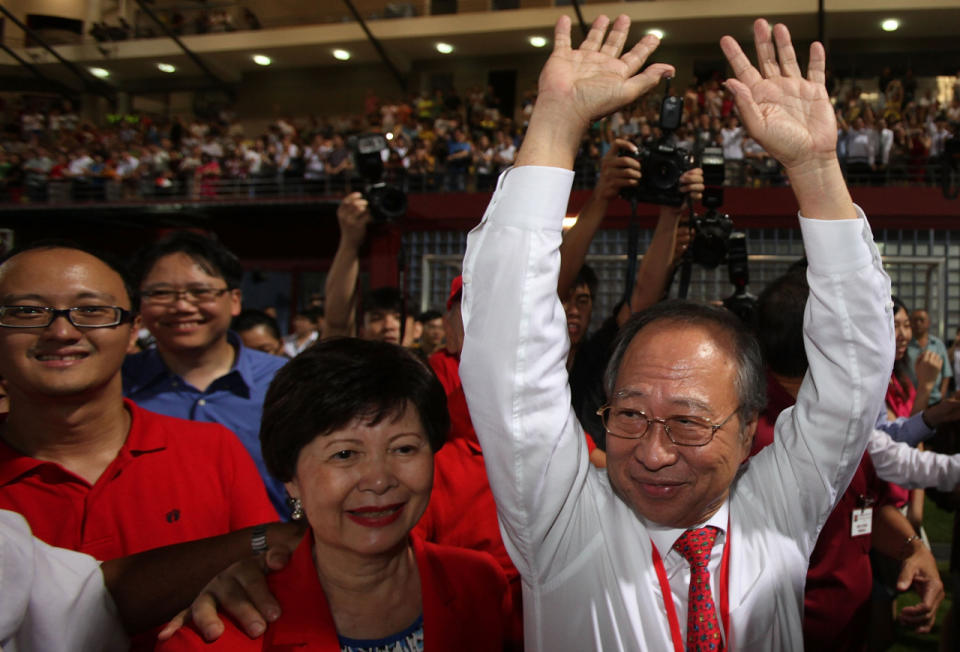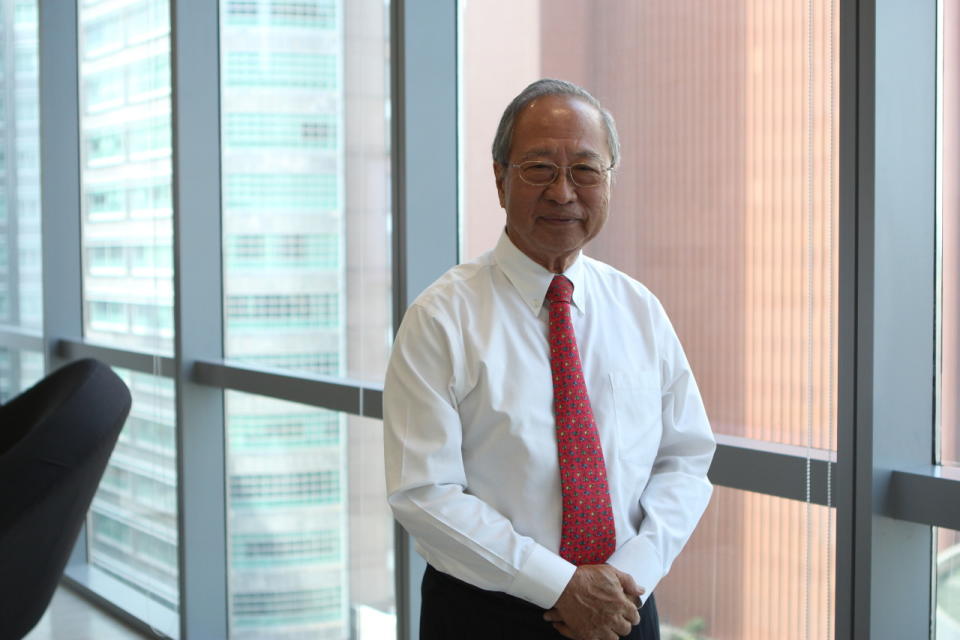No reason for Constitutional Commission to disqualify me: Tan Cheng Bock

Tan Cheng Bock speaks to Yahoo Singapore journalist Nicholas Yong. Photo: Hannah Teoh/Yahoo Singapore
Almost three months after former presidential candidate Tan Cheng Bock announced his intention to run for the office again, much has happened in the political scene in Singapore.
Among the developments, the Constitutional Commission, tasked by Prime Minister Lee Hsien Loong to review certain aspects of the Elected Presidency (EP), finished its deliberations after four public hearings in May.
The Commission was assigned to review three areas: the eligibility criteria of potential candidates, the powers of the Council of Presidential Advisors and to ensure the electability of minority candidates. It is expected to submit its recommendations by the third quarter of the year.
Yahoo Singapore asked the question that has been on the minds of many Singaporeans: what if the Commission implements changes that disqualify Tan from running for president again?
“I think I see no reason why they should make changes to disqualify me,” said the 76-year-old medical practitioner, who lost to current President Tony Tan by just 7,382 votes in the 2011 presidential election.
“I think you must (define) the concept of (the presidency) very carefully. You don’t define it by race, you don’t define it by money, you don’t define it by what ministerial post you hold…but in the quality of that person who wants to helm the presidency.”
Ensuring a minority president
Video by Jeremy Ho
Speaking to Yahoo Singapore last week, Tan had much to say on the issues raised during the Constitutional Commission hearings. A total of 19 individuals and organisations presented proposed changes to the EP, such as ensuring the election of a minority president from time to time.
But Tan noted that when the EP was introduced in 1991, the constitution was amended to change the role of the president from purely ceremonial to a custodial one, laying down “strict conditions” in the process.
“Those terms and conditions were actually laid down by Lee Kuan Yew himself when he proposed the Elected Presidency. And he was very clear: Race didn’t come into the picture,” said Tan, adding that such a change would over-complicate the EP.
“And I remember very clearly, during the debate (before the EP’s introduction), there was no discussion of race, purely on what the president can do to prevent a rogue government. That was Lee Kuan Yew’s fear. I don’t know why people want to change now.”
In order to define the presidency by race, claimed Tan, the constitution would have be amended, in order to revert the presidency to a ceremonial one. The former Ayer Rajah MP added, “But then it raises a question: what happens to the second key? Our original role of the elected president was to make sure there is this second key to guard the reserves.”
A lack of interest in the EP?

The Constitutional Commission held four public hearings on the Elected Presidency in April. Photo: Nicholas Yong/Yahoo Singapore
Given the poor attendance at the Constitutional Commission hearings – only dozens were present at each of the four sessions – are Singaporeans not interested in the EP? Tan reckoned that the lack of interest was down to a lack of understanding of the institution.
“Some of them, they define the president as like an opposition member, (to) check on the government. I think that is a very wrong concept. The president actually is there to complement the government in power. If they have done something that is not proper, it is the duty of the president to…discuss and to come to some common ground.”
Tan recalled that in 2011, some voters asked him for help with opening a hawker stall or getting a taxi license. “So it shows that they have mixed up the bread and butter issues as also being the responsibility of the president.”
He stressed that the president’s role is “well enshrined” in the Constitution, which is to look after the reserves.
Presidential Election 2017

Tan at the 2011 presidential election. Photo: Getty Images
Four candidates contested the 2011 election, so does Tan anticipate an equally competitive election next year? He welcomed the prospect of more candidates coming forward, but expressed fears that the eligibility criteria might be too restrictive.
“Ultimately, you got to choose people from your own group of people in the government. And that’s bad, that’s in-breeding. So there’s no outside influence on you. You’re basically working around yourself.”
Given that Tan himself sensed much “disunity” and “political diversity” while attending General Election rallies in 2011, is he concerned that the 2017 election might see an equally partisan atmosphere? Tan responded that partisan sentiments would always be present in politics.
“Opposition may be at loggerheads with the government, and so on. And government may look at me with a little bit of ‘Eh who is this, he was once upon a time with us, now he’s not with us’,” noted Tan wryly.
“But at the end of the day, any president must try to unify Singapore…that must be in the heart of the man who wants to be the president.”
The theme of unity was one that Tan returned to time and again. Indeed, his Facebook page cover photo proclaims him to be a “unifying figure for Singapore”
A lengthy political career

Tan Cheng Bock says he has unfinished business yet. Photo: Hannah Teoh/Yahoo Singapore
Tan has been taking long walks around Singapore, especially in the park connectors, in a bid to meet and talk to more Singaporean voters. The reception has been “very, very warm”, said Tan.
But after a long political career - Tan retired as an MP in 2011, having served six terms – why is the father of two and grandfather of six not kicking back and enjoying life? “My mind is always focused on the country. 26 years in politics, you cannot just walk away,” said Tan.
He also claimed that some of his old parliamentary colleagues support him, but do not want to do so in public due to the “fear factor”. Tan said, “If I become president, I want to make sure that we shouldn’t live in fear. We should all be one people. We should all enjoy differences of opinion without getting upset.”


